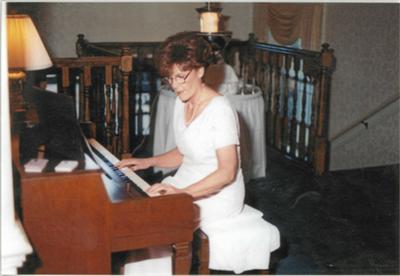The Important Elements in Learning and Teaching Music
by William
I originally trained as a pianist , then became a singer. After many years of teaching singing I accepted a piano student. I listened to the piano teacher who taught in the next studio to me and was perplexed at his methods. He gave no technique ( scales and exercises ) He did not put music in front of the student ie. he taught by imitation. His students did not appear to make any progress. I think it is essential to play from the music from day 1. Musical literacy is the same as reading and writing literacy , you will get on quicker if you can read. The books that start with left hand and right hand thumb on middle c are best because they will get you into the treble and bass with each hand working separately and together when necessary. The earlier you start the better . Youngsters accept things without always asking why it is so. this allows them to absorb info. When an older person gets bogged down with rationale. Playing different scales is necessary because you learn to finger more appropriately (and get the neural pathways from brain to fingers open). Children should play black key scales and contrary motion from the outset. Hanon exercises are essential for finger independence and dexterity. If you are prepared to do a year of the basics you will be rewarded I assure you. The Childrens Bach is an excellent early book because it contains lots of keyboard styles. When the contributor asks how long before he/she can "really" play they may really be asking about ability to read. I can play almost any piece put in front of me because I can play at sight. This takes many years of practise but is extremely rewarding because, as long as you have the printed score you can entertain and accompany ad infinitum. Click here to read or post comments Return to Piano FAQs Question or Answer. How to handle a child in a piano lesson
How do you handle an 11 year old girl who will not communicate with the teacher during the piano lesson, yet she is confused Click here to read or post comments Return to Piano FAQs Question or Answer. How to motivate my student
by Patricia Norton
A 10 year old boy has been taking piano lessons for roughly 2 years and is still in the primer level. As of the past 6 months, he has not really had any lessons prepared to say the least. Click here to read or post comments Return to Piano FAQs Question or Answer. Resources for new piano teachers
by Stephen McCool
Hello, Return to Piano FAQs Question or Answer. To speed up the progress of a beginner....
by Eddie
It is a good idea to start learning the basic chords and their inversions. Return to Piano FAQs Question or Answer. What is a Chorus and a Melody
by Mark Bird
What does chorus mean when playing piano solo and also what is a melody? Return to Piano FAQs Question or Answer. |
How To Play Piano by ChordsTHE FAST AND EASY WAY TO LEARN PIANO! The Ultimate Piano by Chords Learning Kit "Your entire site is simply fantastic. I really loved it. Now I am learning the basics of piano by myself, with your really great help. Thank you very much!" Jaime C. from Brazil "I only started to play about six weeks ago but the last hour of watching your videos about chord progressions has been something of a revelation. You're brilliant!!!!" Stephen Roberts from U.S.A "I'm a beginning keyboard player and your video's are an excellent guide. You're absolute not in a hurry, and take time to explain. I'm sure I'll follow all your lessons to get the hang of playing the piano/keyboard!" Wouter E. from the Netherlands "Thanks for all your work ( tuto and others ). You're doing a really great job, You're the best internet teacher I know." Anthony Hassen Cohen from France |
|||
|
Enjoy This Site?
Then why not use the button below, to add us to your favorite bookmarking service? |
||||
|
| Homepage |
Site Map |
Just Added |
Buy Us Coffee! |
Sign up / Freebies |
Recommended Products |
Articles & Reviews |
Blog |
Beginners Course |
Accompaniment Course |
Notes Lessons |
Playing Technique | Chords | Theory| Tutorials | Sheets | Forum | Piano Videos | History | Piano Stuff| Keyboards and Pianos| |
||||
|
Copyright piano-play-it.com © 2008-2017. | ||||















